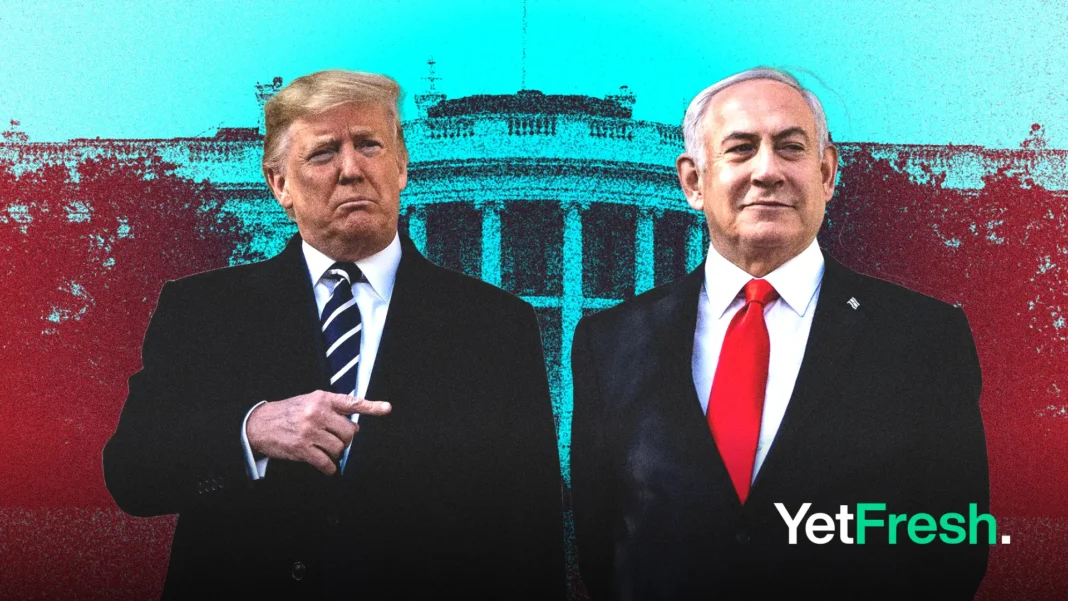Summary:
- U.S. President Donald Trump has invited Israeli Prime Minister Benjamin Netanyahu to the White House on February 4, 2025, marking Netanyahu as the first foreign leader to visit during Trump’s second term.
- The meeting will focus on Middle East peace efforts, countering shared adversaries, and sustaining the fragile ceasefire in Gaza after 15 months of conflict.
- Netanyahu faces an ICC arrest warrant for alleged war crimes in Gaza, but the U.S., not a party to the ICC, continues to support him while Republicans push legislation to sanction the court.
- Trump recently lifted restrictions on supplying Israel with heavy bombs and controversially suggested relocating Gaza residents to neighboring Arab countries.
U.S. President Donald Trump has extended an invitation to Israeli Prime Minister Benjamin Netanyahu to visit the White House on February 4, 2025, making Netanyahu the first foreign leader to meet Trump during his second term in office. The announcement underscores the close ties between the two leaders and comes at a pivotal moment as the Middle East grapples with ongoing tensions and a fragile ceasefire in Gaza.
In a letter addressed to Netanyahu, Trump emphasized the importance of their discussions, stating, “It will be my honor to host you as my first foreign leader during my second term. I look forward to discussing how we can bring peace to Israel and its neighbors, and efforts to counter our shared adversaries.” The meeting is set against the backdrop of a six-week ceasefire in Gaza, which temporarily halted a devastating 15-month conflict between Israel and Hamas. Negotiations for the second phase of the truce, aimed at achieving a permanent ceasefire and an Israeli withdrawal from Gaza, are scheduled to begin just one day before the leaders’ meeting.
The invitation highlights Trump’s continued support for Netanyahu amid international scrutiny. Netanyahu faces an arrest warrant issued by the International Criminal Court (ICC) over allegations of war crimes and crimes against humanity during Israel’s military campaign in Gaza. These charges include targeting civilian populations and using starvation as a method of warfare. While over 120 ICC member states are obligated to detain Netanyahu if he enters their territories, the United States is not a party to the ICC treaty and has actively opposed its actions against Israeli officials. Congressional Republicans have even proposed sanctions against the ICC for issuing these warrants, though Democrats blocked the legislation earlier this week.
The upcoming meeting also reflects Trump’s broader Middle East strategy, which aligns closely with Netanyahu’s agenda. Trump recently lifted restrictions on supplying Israel with 2,000-pound bombs that had been imposed by the Biden administration due to concerns over Israel’s military tactics in Gaza. Netanyahu welcomed this decision, thanking Trump for providing Israel with “the tools it needs to defend itself.” Additionally, Trump has proposed controversial measures such as relocating Palestinian residents of Gaza to neighboring countries like Jordan and Egypt—an idea widely criticized as akin to ethnic cleansing by regional leaders.
Despite their historically complex relationship, Trump and Netanyahu share a mutual interest in addressing shared adversaries such as Iran and pursuing normalization agreements between Israel and Arab nations like Saudi Arabia. The February 4 meeting is expected to cover these topics extensively, alongside discussions on sustaining peace efforts in Gaza.
However, skepticism surrounds the durability of the current ceasefire. Trump himself expressed doubts about its longevity last week, remarking that he is “not confident” it will hold. Meanwhile, Netanyahu has warned that Israel will resume its military operations if Hamas fails to meet its demands during upcoming negotiations.
This high-profile meeting underscores both leaders’ desire to project strength amid domestic and international challenges. For Trump, it reaffirms his commitment to solidifying U.S.-Israel relations during his second term. For Netanyahu, who faces mounting legal and political pressures at home and abroad, it provides an opportunity to bolster his standing on the global stage while securing continued U.S. support for Israel’s policies in the region.
Source: The guardian




